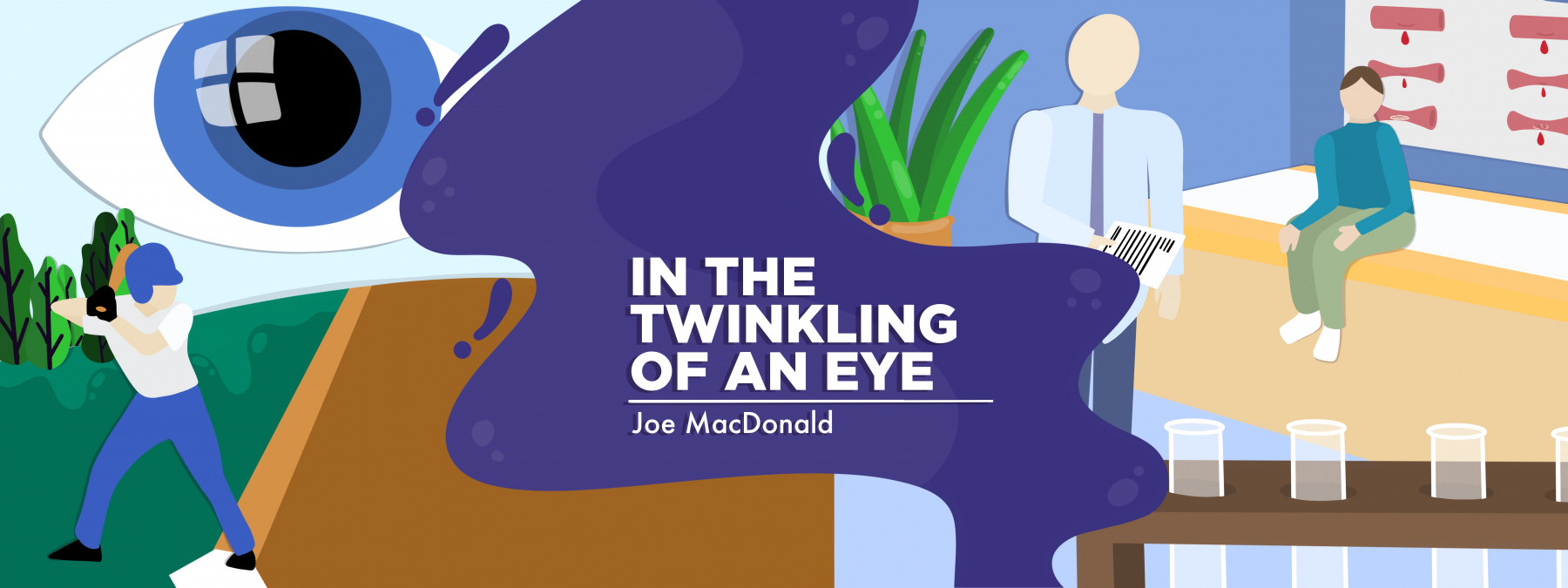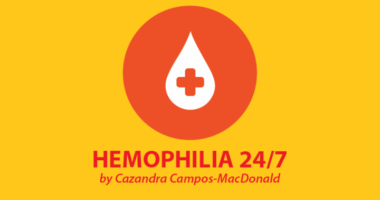Reflecting on My Son’s Medical History

I recently accompanied my youngest son to his comprehensive checkup at the Ted R. Montoya Hemophilia Program and Treatment Center. Located in Albuquerque and affiliated with the University of New Mexico hospital system, the center serves as our main treatment facility for hemophilia.
“MacDonald the Younger” started seeing the hematologist in charge when he was 6 months old. He is now 15 and has years of experience with the same group of doctors and nurses. The medical team continues to witness my stinky boy’s physical and emotional development from a baby to a teenager. Such familiarity helps provide rich advice to our family.
As my son and I waited for our hematologist, Dr. Shirley Abraham, to enter our room, we began to discuss our history with the treatment center and his medical history. We discussed the development of his bleeding disorder and the difficulties we struggled with along the way. We talked about the incredible medical advancements he’s lived through and how manageable hemophilia is now compared with the early days. He reminded me of the seven port-a-caths implanted in various parts of his torso and how the first six failed to operate effectively.
Finally, he asked, “Dad, how many surgeries have I had?”
I replied, “At least 14 operations. One to put in a port, and another to remove it from your body.”
We discussed his struggle to overcome a fear of needles and how difficult it was to infuse factor VIII by accessing the port-a-cath with a 1.5-inch-long needle. We talked about how he found a way through the fear by extending his thumb to the ceiling when he was ready to start the process of infusing. We discussed the many holidays we celebrated when hospitalized and how we made it through the worst circumstances.
It was fascinating to hear his recollections of the past and how he’s processed the tough times when bleeding episodes occurred, leaving him unable to walk. I learned that his inner strength is formidable, as he continues to weather any storm.
I discovered that my son and I have a mutual appreciation for one another. We respect the other’s ability to find the best in every circumstance. I reiterate that we must maintain an attitude of gratitude as we continue our journey through the different terrains we experience in life. Some days it’s harder to find the good that life offers, but that does not mean we stop trying to find hope in every circumstance.
When Dr. Abraham walked into the room where my son and I were waiting, everything immediately felt familiar and happy. She recounted my son’s medical advances and asked him about issues related to hemophilia. He shared that he suffers from pain in his right knee and ankle due to damage related to past continuous bleeding episodes. In response, Dr. Abraham recommended he take Celebrex (celecoxib) to help with his pain.
My boy thanked her for helping him find a solution to his problem and shared with her that he’d had an exceedingly difficult school year due to COVID-19, and that he looks forward to attending his sophomore year in person and not on a Zoom video.
After satisfying all of his medical needs, my stinky boy and I left the room. I felt incredibly grateful for the relationship we’ve made with our medical team, forged through many years of working toward the same goal: my son’s happiness.
We often take for granted the people who come into our lives and make a choice to journey with us. So it is with the faculty and staff of the Ted R. Montoya Hemophilia Program. I left giving thanks for the team, knowing that with each step my son takes, a brilliant medical team is committed to walking beside him all the way. And, of course, his mom and dad offer a smile filled with hope and blessings for a great life of endless possibilities.
***
Note: Hemophilia News Today is strictly a news and information website about the disease. It does not provide medical advice, diagnosis, or treatment. This content is not intended to be a substitute for professional medical advice, diagnosis, or treatment. Always seek the advice of your physician or another qualified health provider with any questions you may have regarding a medical condition. Never disregard professional medical advice or delay in seeking it because of something you have read on this website. The opinions expressed in this column are not those of Hemophilia News Today or its parent company, Bionews, and are intended to spark discussion about issues pertaining to hemophilia.







Leave a comment
Fill in the required fields to post. Your email address will not be published.